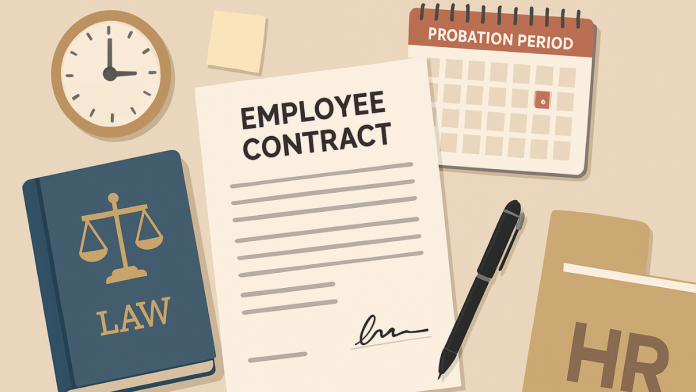Employee contracts are like a rulebook for work. They explain what an employer expects from a worker and what the worker gets in return. These contracts are super important because they help businesses follow labour laws. When done right, they prevent fights between workers and bosses and show that a company follows the rules.
Why Employee Contracts Matter
Employee contracts are a must for any business. They set clear rules for the job, like how much someone gets paid, their work hours, and what happens if they leave. Without a contract, misunderstandings can happen. For example, a worker might think they get extra pay for overtime, but the boss might not agree. This can lead to arguments or even legal trouble. A good contract stops these problems by putting everything in writing.
Contracts also prove a company follows labour laws. Every country has rules about work, like minimum wage or vacation time. If a business doesn’t follow these, it can face fines or lawsuits. A well-written contract shows that the company knows the law and sticks to it. This protects both the worker and the business.
Best Practices for Drafting Compliant Contracts
Writing a good employee contract takes care. It needs to be clear, fair, and follow the law. Here are some best practices to make sure your contracts are solid.
💼 Behind India’s business boom lies a labour law trap—and foreign companies are walking into it
First, include clear details about salary. The contract should say how much the worker earns, how often they get paid, and if there are bonuses or overtime pay. For example, write, “The employee will earn $3,000 per month, paid on the 1st of each month.” This avoids confusion and shows the company follows minimum wage laws.
Next, explain the probation period. This is a time when the employer checks if the worker is a good fit. The contract should say how long probation lasts, usually three to six months, and what happens during it. For instance, “The employee will be on probation for three months, during which their performance will be reviewed.” This helps everyone know what to expect.
Termination clauses are also key. These explain how the job can end. The contract should say how much notice the worker or employer must give and what happens if someone breaks the rules. For example, “Either party must give 30 days’ notice to end the contract, except in cases of serious misconduct.” This keeps things fair and follows laws about ending jobs.
Finally, use simple language. Contracts shouldn’t be full of hard words that confuse people. Write in a way that’s easy to understand, even for someone young. Instead of “remuneration,” say “pay.” Instead of “termination,” say “ending the job.” This makes the contract clear to everyone.
⚖️ Labour Laws Just Got a Dangerous Twin — How DPDP is Reshaping Indian Workplaces
How Contracts Prevent Disputes
A solid contract is like a map for the workplace. It shows everyone the right path to follow. When rules are clear, workers and bosses are less likely to argue. For example, if the contract says workers get two weeks of vacation, no one can claim they thought it was three. This stops fights before they start.
Contracts also protect businesses in court. If a worker says the company didn’t follow the law, the contract can prove otherwise. For instance, if it shows the worker agreed to a certain pay rate, they can’t later say it was too low. This helps small business owners and HR heads avoid costly legal battles.
Showing Compliance with the Law
Labour laws are strict, and businesses must follow them. A good contract shows that a company respects these rules. It includes things like minimum wage, work hours, and safety rights. When inspectors check a business, they look at contracts to see if the company is doing things right. A clear, fair contract proves the business is on the right track.
For contract lawyers, writing compliant contracts is a big part of their job. They make sure every detail follows the law, like including required benefits or rest days. Small business owners rely on these contracts to avoid mistakes that could lead to fines. HR heads use them to keep the workplace fair and organized.
